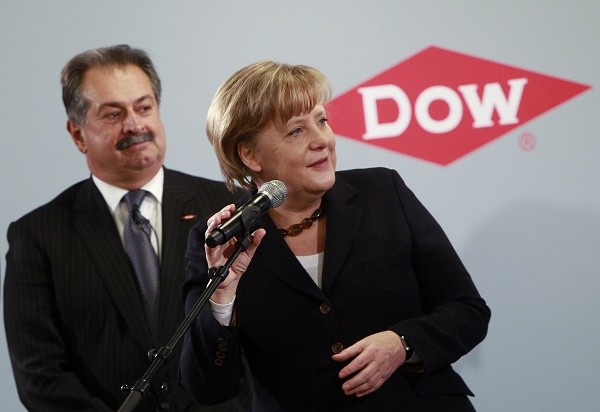Michigan Based Dow Chemical Co. is divesting from its Chlorine business. The largest chemical company in Chlorine business will reduce its shareholding to 50.5 percent by attracting USD 5 billion in a spin-off merger with a smaller, lesser known Olin Corporation.
The move is aimed to exit business from lower-margin segments, such as Chlorine. Dow Chief Executive Officer Andrew Liveris has plans to divest to the tune of USD 7-8.5 billion.
Dow will focus higher-margin businesses, such as plastics for automobiles and packaging, advantaged ethylene and propylene derivatives.
"Our drive is to get better, not bigger," Mr. Liveris said.
Exiting business shareholding in the chlor-aklali business will help Dow "move up the value chain," Liveris said.
Meanwhile, for the smaller and more aggressive Olin Corp., it will enhance their presence in the global delivery of Chlorine and its related products.
In a statement, Olin Corporation informed that the deal is going to save $200 million a year due to cost-reduction in operations, according to NY City News.
And, for a company like Olin, shaking hands with a reputed firm such as Dow Chemical Co. makes it a perfect combination for adding brand-value and derive increased efficiency in the business.
The results were obvious. Olin shares climbed 14 percent to USD 31 in Friday's trade, while Dow shares rose 2.8 percent to USD 47.76.
Dow's rise is probably attributed to the fact that the firm was getting leaner and more productive by divesting low income-generating businesses.
Joseph D. Rupp, CEO of Olin Corporation, said, "This transaction is a natural fit to our strategic objectives - creating a sustainable, long-term growth platform and enhanced shareholder and customer value."
The spin-off merger deals are getting firm ground in latest divestment plans of chemical companies. MeadWestvaco Corp. has done a similar deal with Rock-Tenn Co. recently.
The process is known as Reverse Morris Trusts. It is a tax-free way to shrink holdings in unwanted divisions, according to Wall Street Journal.
Dow's dominance in the business stays intact as it is a majority shareholder. Olin, on the other hand, gets a chance to use the latest technologies and leverage on Dow's business policies.
A 49.5 percent stake is not bad for Olin Corp. after all.



























